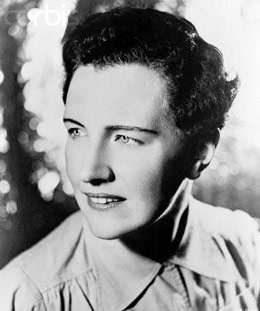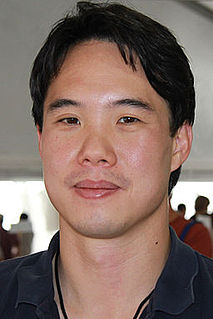A Quote by Anselm Kiefer
Art maybe the only space where an indvidual can be utterly free to question himself, as well as his relationship to his God
Related Quotes
The individual is defined only by his relationship to the world and to other individuals; he exists only by transcending himself, and his freedom can be achieved only through the freedom of others. He justifies his existence by a movement which, like freedom, springs from his heart but which leads outside of himself.
I cannot define for you what God is. I can only say that my work has proved empirically that the pattern of God exists in every man and that this pattern has at its disposal the greatest of all his energies for transformation and transfiguration of his natural being. Not only the meaning of his life but his renewal and his institutions depend on his conscious relationship with this pattern of his collective unconscious.
The face of the Son of God, who, instead of accepting the sacrifice of one of his creatures to satisfy his justice or support his dignity, gave himself utterly unto them, and therein to the Father by doing his lovely will; who suffered unto the death, not that men might not suffer, but that their suffering might be like his, and lead them up to his perfection.
Each man in his life honors, and imitates as well as he can, that god to whose choir he belonged, while he is uncorrupted in his first incarnation here; and in the fashion he has thus learned, he bears himself to his beloved as well as to the rest. So, then, each chooses from among the beautiful a love conforming to his kind, and then, as if his chosen were his god, he sets him up and robes him for worship.
Man alone, during his brief existence on this earth, is free to examine, to know, to criticize, and to create. In this freedom lies his superiority over the forces that pervade his outward life. He is that unique organism in terms of matter and energy, space and time, which is urged to conscious purpose. Reason is his characteristic and indistinguishing principle. But man is only man -- and free -- when he considers himself as a total being in whom the unmediated whole of feeling and thought is not severed and who impugns any form of atomization as artificial, mischievous, and predatory.
Who stands firm? Only the one for whom the final standard is not his reason, his principles, his conscience, his freedom, his virtue, but who is ready to sacrifice all these, when in faith and sole allegiance to God he is called to obedient and responsible action: the responsible person, whose life will be nothing but an answer to God's question and call.
In the present age, man proves his separation from his Creator by his spirit of self-sufficienc y and positive rejection of God. The present issue between God and man is one of whether man will accept God's estimate of him, abandon his hopeless self-struggle, and cast himself only on God who alone is sufficient to accomplish his needed transformation.
I think you too recognize the important relationship between philosophy and art, and it is just this relationship that most painters deny. The great masters do grasp it, unconsciously; but I believe that a painter's conscious spiritual knowledge will have a much greater influence upon his art, and that it would be due only to a weakness in him, or lack of genius, should this spiritual knowledge be harmful to his art.
A man cannot free himself by any self-denying ordinances, neither by water nor potatoes, nor by violent possibilities, by refusing to swear, refusing to pay taxes, by going to jail, or by taking another man's crops or squatting on his land. By none of these ways can he free himself; no, nor by paying his debts with money; only by obedience to his own genius.








































